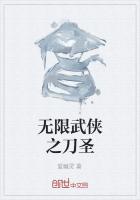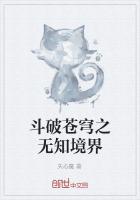--That sort of thing. It is Herrick, I believe, and the music with the reedy, irregular, lilting sound that goes with Herrick, And it was dusk; the heavy, hewn, dark pillars that supported the gallery were like mourning presences; the fire had sunk to nothing--a mere glow amongst white ashes, . . . It was a sentimental sort of place and light and hour. . . .
And suddenly Nancy found that she was crying. She was crying quietly; she went on to cry with long convulsive sobs. It seemed to her that everything gay, everything charming, all light, all sweetness, had gone out of life. Unhappiness; unhappiness;unhappiness was all around her. She seemed to know no happy being and she herself was agonizing. . . .
She remembered that Edward's eyes were hopeless; she was certain that he was drinking too much; at times he sighed deeply.
He appeared as a man who was burning with inward flame; drying up in the soul with thirst; withering up in the vitals. Then, the torturing conviction came to her--the conviction that had visited her again and again--that Edward must love some one other than Leonora. With her little, pedagogic sectariani** she remembered that Catholics do not do this thing. But Edward was a Protestant.
Then Edward loved somebody. . . .
And, after that thought, her eyes grew hopeless; she sighed as the old St Bernard beside her did. At meals she would feel an intolerable desire to drink a glass of wine, and then another and then a third. Then she would find herself grow gay. . . . But in half an hour the gaiety went; she felt like a person who is burning up with an inward flame; desiccating at the soul with thirst;withering up in the vitals. One evening she went into Edward's gun-room--he had gone to a meeting of the National Reserve Committee. On the table beside his chair was a decanter of whisky. She poured out a wineglassful and drank it off. Flame then really seemed to fill her body; her legs swelled; her face grew feverish. She dragged her tall height up to her room and lay in the dark. The bed reeled beneath her; she gave way to the thought that she was in Edward's arms; that he was kissing her on her face that burned; on her shoulders that burned, and on her neck that was on fire.
She never touched alcohol again. Not once after that did she have such thoughts. They died out of her mind; they left only a feeling of shame so insupportable that her brain could not take it in and they vanished. She imagined that her anguish at the thought of Edward's love for another person was solely sympathy for Leonora; she determined that the rest of her life must be spent in acting as Leonora's handmaiden--sweeping, tending, embroidering, like some Deborah, some medieval saint--I am not, unfortunately, up in the Catholic hagiology. But I know that she pictured herself as some personage with a depressed, earnest face and tightly closed lips, in a clear white room, watering flowers or tending an embroidery frame. Or, she desired to go with Edward to Africa and to throw herself in the path of a charging lion so that Edward might be saved for Leonora at the cost of her life. Well, along with her sad thoughts she had her childish ones. She knew nothing--nothing of life, except that one must live sadly. That she now knew. What happened to her on the night when she received at once the blow that Edward wished her to go to her father in India and the blow of the letter from her mother was this. She called first upon her sweet Saviour--and she thought of Our Lord as her sweet Saviour!--that He might make it impossible that she should go to India. Then she realized from Edward's demeanour that he was determined that she should go to India. It must then be right that she should go. Edward was always right in his determinations. He was the Cid; he was Lohengrin; he was the Chevalier Bayard.
Nevertheless her mind mutinied and revolted. She could not leave that house. She imagined that he wished her gone that she might not witness his amours with another girl. Well, she was prepared to tell him that she was ready to witness his amours with another young girl. She would stay there --to comfort Leonora.
Then came the desperate shock of the letter from her mother. Her mother said, I believe, something like: "You have no right to go on living your life of prosperity and respect. You ought to be on the streets with me. How do you know that you are even Colonel Rufford's daughter?" She did not know what these words meant.
She thought of her mother as sleeping beneath the arches whilst the snow fell. That was the impression conveyed to her mind by the words "on the streets". A Platonic sense of duty gave her the idea that she ought to go to comfort her mother--the mother that bore her, though she hardly knew what the words meant. At the same time she knew that her mother had left her father with another man--therefore she pitied her father, and thought it terrible in herself that she trembled at the sound of her father's voice. If her mother was that sort of woman it was natural that her father should have had accesses of madness in which he had struck herself to the ground. And the voice of her conscience said to her that her first duty was to her parents. It was in accord with this awakened sense of duty that she undressed with great care and meticulously folded the clothes that she took off. Sometimes, but not very often, she threw them helter-skelter about the room.
And that sense of duty was her prevailing mood when Leonora, tall, clean-run, golden-haired, all in black, appeared in her doorway, and told her that Edward was dying of love for her. She knew then with her conscious mind what she had known within herself for months--that Edward was dying--actually and physically dying--of love for her. It seemed to her that for one short moment her spirit could say: "Domine, nunc dimittis, . . .
Lord, now, lettest thou thy servant depart in peace." She imagined that she could cheerfully go away to Glasgow and rescue her fallen mother.















